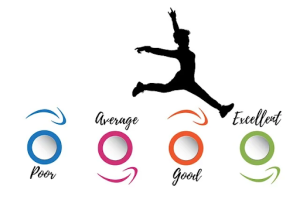For many in the UK, GamStop is an essential tool for managing their online gambling.1 However, the global nature of the internet means a vast array of gambling sites operate outside this self-exclusion scheme.2 While the term “safe” in this context carries a different meaning than with UKGC-regulated sites, it is still possible to identify more reputable non-GamStop platforms. This guide will walk you through the crucial steps and indicators to help you navigate this wider market with greater awareness and, hopefully, a reduced risk.
The Nuance of “Safety” Beyond GamStop
It’s vital to begin with a clear understanding: no gambling site operating outside the UKGC’s direct jurisdiction can offer the same level of consumer protection and regulatory oversight as a UK-licensed operator. GamStop itself is an integral part of the UK’s robust responsible gambling framework.3 When we talk about “safe” gambling sites not on GamStop, we refer to platforms that, despite not being part of the UK scheme, demonstrate a commitment to fair practices, security, and player well-being within their own operating context. The onus of due diligence rests entirely on the player.
Step 1: Verify Licensing and Regulation
The most critical factor in assessing the reputability of any non-GamStop site is its licensing. While not UKGC, a valid international license is a baseline requirement.
- Reputable International Regulators: Look for licenses from established jurisdictions. The Malta Gaming Authority (MGA) is highly regarded for its strict standards, though many MGA sites voluntarily block UK players or participate in similar exclusion schemes.4 The Kahnawake Gaming Commission and Curacao eGaming are other common licenses. Ensure the license is clearly displayed on the website (usually in the footer) and, if possible, verifiable on the regulator’s official website using the provided license number.
- Avoid Unlicensed Sites: Never, under any circumstances, engage with a gambling site that does not openly display a verifiable license. These platforms are entirely unregulated, offering no recourse in case of fraud, non-payment, or unfair practices.
Step 2: Assess Reputation and Player Feedback
Once licensing is confirmed, delve into the site’s real-world performance and reputation.
- Independent Review Sites: Consult reputable gambling review websites that specifically evaluate non-GamStop operators. Look for comprehensive reviews that cover aspects like game selection, payment methods, customer support, and bonus terms.
- Player Forums and Communities: Read testimonials and discussions on forums like Reddit or dedicated gambling communities. Pay close attention to recurring complaints, especially concerning withdrawals, account closures, or unfair bonus enforcement. A consistent pattern of unresolved issues is a significant red flag.
- Look for Longevity: While not foolproof, older sites with a long operational history and a sustained positive reputation often indicate reliability.
Step 3: Scrutinize Terms and Conditions (T&Cs)
A truly reputable site, regardless of its jurisdiction, will have clear, transparent, and fair terms and conditions.
- Bonus Terms: Examine wagering requirements, maximum win caps, game restrictions, and expiry dates associated with bonuses.5 Unrealistic or overly complex terms can make it virtually impossible to withdraw winnings from bonus play.
- Withdrawal Policies: Understand minimum and maximum withdrawal limits, processing times, and any associated fees. Reputable sites usually process withdrawals within a reasonable timeframe (e.g., 24-72 hours after verification). Watch out for excessively long pending periods or high minimum withdrawal amounts.
- KYC Procedures: While some non-GamStop sites might be perceived as having lighter KYC, a reputable one will still have robust identity verification processes in place to prevent fraud and money laundering.
Step 4: Evaluate Security and Responsible Gambling Features
Even without UKGC oversight, better non-GamStop sites prioritize player security and offer some level of responsible gambling tools.6
- SSL Encryption: Ensure the site uses SSL (Secure Socket Layer) encryption to protect your personal and financial data. This is indicated by “https://” in the website address and a padlock icon.
- Privacy Policy: A clear and accessible privacy policy that outlines how your data is collected, stored, and used.
- Internal Responsible Gambling Tools: While not linked to GamStop, look for features like self-exclusion options (site-specific), deposit limits, loss limits, and reality checks. The availability of these tools indicates a commitment to player well-being.
- Fairness of Games: Reputable sites will use Random Number Generators (RNGs) for their games, often audited by independent bodies (though these audits may not be as rigorously public as for UKGC sites).7
Step 5: Test Customer Support
Before depositing funds, test the site’s customer support. A responsive, knowledgeable, and multi-channel support team (live chat, email, phone) is a strong indicator of a professionally run operation.
Final Thoughts: Prioritize Personal Responsibility
Finding a “safe” gambling site not on GamStop is about minimizing risk in a less regulated environment. It requires a significant amount of personal due diligence and a heightened sense of self-awareness regarding your gambling habits. For those genuinely struggling with gambling, overriding a GamStop exclusion through these sites is highly inadvisable. Always remember that the most secure and protected gambling environment for UK players remains within the UKGC-regulated market.









